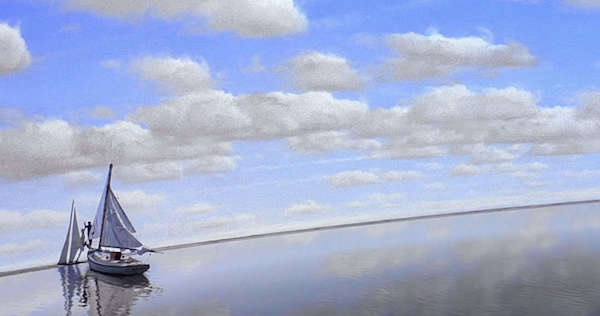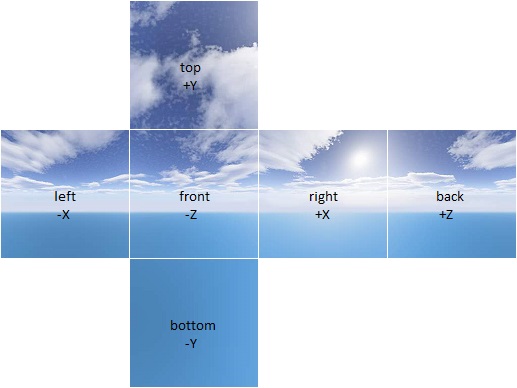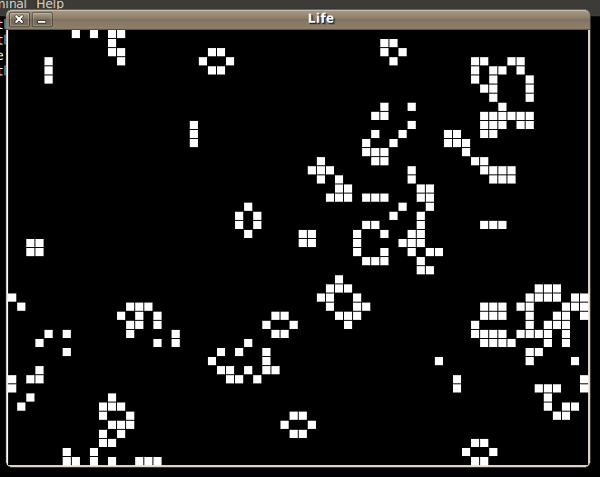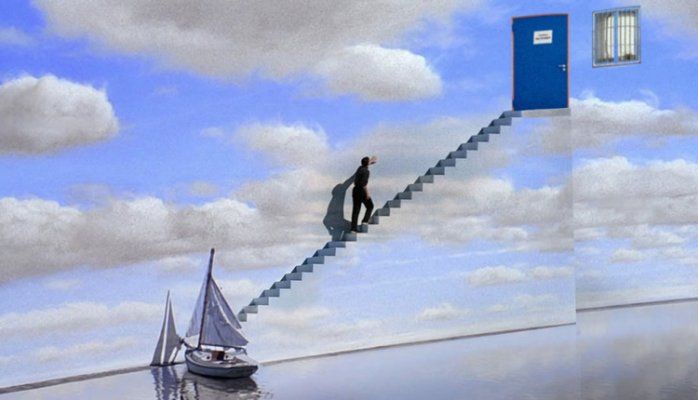The biggest question
It's hard to believe how little concrete understanding there is about the fundamental question of existence. This is probably because it's such a deep question that can't be verified one way or another, and so it's relegated to philosophy and religions. Much debate can be found, but not in an academical and scientific fashion.
Here I'd like to make a case, based on what we know today and from my very personal perspective.
One popular suggestion these days is that we live in a simulation. This may sound scientific, but I think that in the end it's a more modern and technical way of saying that "there is a God", so much for ditching religions.
Regardless of the hype and popularity, I think that this is a theory worth entertaining, and in fact it's the most plausible today, though it would not satisfy the question completely, because at the deeper level there would still be the matter of "who created the creator (of this simulation)", but it would still be a step forward (or upward).
The concept of life as a simulation was popularized in modern times by movies like "The Matrix" and "The Truman Show". The latter wasn't about a full-sensory digital simulation, but it showed a perspective of a life that was constructed in a physical setting that created the appearance of a world more complex than what it really was.
More than movies, I think that the biggest case for the idea of living in a simulation is due to the recognition of what we've been able to do with digital computers and video games. Games are something that is very close to me. My involvement in game development came early in life and was generally a technical one, mostly focused on the real-time graphics side of things. I was always interested in simulating realistic experiences to the limit of what the hardware was capable of.
Computer graphics in games is very much about using a limited set of resources to give an impression of reality. Major optimizations are used, such as using hollow meshes of triangles that are built with just enough geometry and textures to look as realistic as possible at an interactive frame rate. This is where "The Truman Show" analogy comes in. In the movie, the protagonist is fooled into living in what is a very extensive and complex movie set, where even the sky is artificial.

This is also what happens in video games, where virtual objects are created at a level of complexity that is necessary just to fool the player. Most games can get away with using a textured dome, (or just a cube, with some perspective trickery) to represent distant objects such as mountains and the sky, without the player necessarily understanding the level of approximation that is used for those virtual object.

In practice, players today can still spot graphics artifacts due to limitations of the hardware, but these limitations are fast disappearing as hardware evolves and 3D rendering gets closer to be indistinguishable from reality. To be clear, I'm not suggesting that we're going to simulate our own reality to a truly unbelievable degree anytime soon. My suggestion is that it's become obvious to us how relatively easy it is to construct relatively complex virtual worlds. It's certainly easier to create virtual sub-realities than to evolve in the physical world with all its limitations.
From the perspective of a software engineer and game developer, it seems obvious that given the progress that we're making into creating more and more complex virtual worlds, we are likely to live in a virtual world ourselves. In fact, to think that we're not living in a simulation, is probably akin to thinking that Earth is at the center of the Universe. It would be arrogant to establish that our reality is just too special not to be a sub-reality itself.
This would also satisfy the observation that complexity can be captured in a fractal structure (self-similarity across different scales). Of course, an observation in this reality doesn't necessarily have to be true at higher realities, but my guess would be that higher realities would be structured on something that is more evolved than a fractal, not less.

One counter argument to the idea of being in a simulation is that what is being simulated down to the atomic level is just too complex and it would consume too many resources. First of all, it's more likely than not that this simulation would be generated by entities in a universe that is far beyond what we can imagine and that doesn't respond to our same laws of physics. In that case, to our creators we would be more like a bunch of pixels in the Game of Life.

Secondarily, we ourselves have an incredibly limited perception of the potential matter in the know Universe. We have been observing celestial bodies for a long time, and we have been able to determine their movement and mass, so, in a sense we can reach very far with our deductive abilities, however that is still an extremely low resolution observation, and even as we expand our abilities to observe more in detail, it's a practical impossibility to truly inspect the far corners of the universe at the full purported resolution of the matter.
Let's not forget also how convenient are the fundamental laws of physics that restrict the speed at which particles can move (speed of light), restrict the resolution of matter (Planck constant) and how determinism is lost when entering quantum mechanics. This reminds me how in software engineering determinism can be dropped in favor of performance, like when converting an algorithm to work for multi-threading or when processing data in a lossy fashion. Perhaps these known limitations of nature are due to our current comprehension, but they may also be hard limitations due to the complexity of the machine on which a software is running. In a sense, the conclusion by which information in this universe simply can't travel faster than the speed of light, is similar to having reached the walls of the stage in The Truman Show.
Is this all there is, or are we boxed-in from a deeper reality working on a different plane of existence ? My guess is that we are boxed-in, and we are some sort of emergent intelligence with the goal to solve the riddle and find a way out.

The flaw in this argument is that it's a very egocentric one. Here I'm assuming that humans are the key characters, but perhaps even though we're capable of guessing what the game may be about, we may still not be the species in this universe (biological or otherwise) that is equipped to solve the riddle. Maybe we have to make more powerful computers to solve this question, or maybe other life forms are the better candidates.
On the other hand, being a skeptic is dangerous, because any mistake becomes automatically confirmation that one should not have dared to stray from the herd. Even worse, one is automatically bundled together with any other person that is considered to be a skeptic, also known as "guilt by association"… i.e. "you're not one of those flat-Earthers, are you ?".
Deboonking is also a form of virtue signaling. By deboonking something, one shows to be on the side of science and reason. It's a way to say "I'm not one of those conspiracy theorists, I'm a rational person". This is a very powerful social mechanism, as it allows one to be part of a group that is perceived as being on the right side of history.
The problem is that science is not about being on the right side of history, it's about finding the truth, and the truth is often not what we expect it to be. Science is about being skeptical, about questioning everything, about not taking anything for granted. It's about being open to new ideas, even if they go against what we believe to be true.
This is why I think that deboonking is often a form of anti-science. It's a way to shut down discussion, to prevent people from questioning things, to make them afraid of being labeled as conspiracy theorists. It's a way to enforce conformity, to make people afraid of thinking for themselves.
The irony is that science itself is often wrong. The history of science is full of examples of theories that were considered to be true, only to be proven wrong later. This is not a bad thing, it's how science works. Science is about being wrong, about making mistakes, about learning from those mistakes.
The problem is that we have turned science into a religion, into something that cannot be questioned. We have turned scientists into priests, into people who cannot be wrong. We have turned science into dogma, into something that must be believed without question.
This is not science. This is religion. And it's a dangerous religion, because it prevents us from finding the truth.